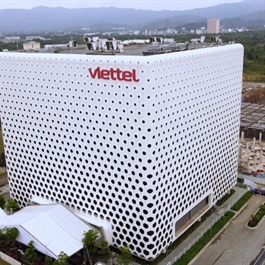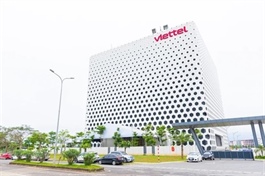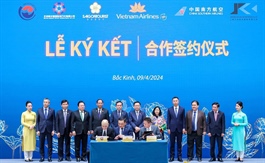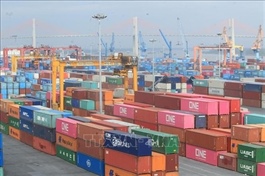Cooperative development to promote production along the value chain
Cooperative development to promote production along the value chain
Sustainable development of product value chains has become an increasingly prominent issue, not only in Việt Nam but also on a global scale.
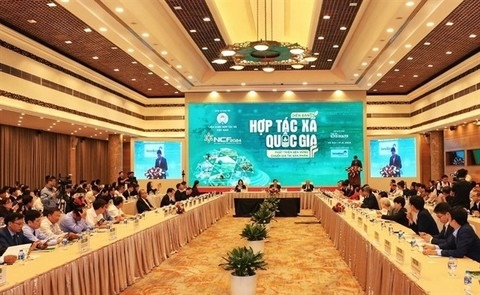
A view of the forum. — VNA/VNS Photo |
"It is both an objective necessity and an imperative throughout the development process," said Cao Xuân Thu Vân, Chairwoman of the Việt Nam Cooperative Alliance (VCA), during the 2024 National Cooperative Forum.
She further underscored that the collective economic sector was no exception to this trajectory.
The collective economic sector was no exception to that trajectory, she added.
The VCA organised the 2024 National Cooperative Forum in Hà Nội on Thursday.
The forum aims to exchange and share experiences and identify solutions to develop collective and cooperative economies in alignment with the green, circular and knowledge economy trends, within the framework of the 2024 Action Month for Cooperatives.
The value chain is very significant for cooperatives. Collective and cooperative economies were also the "breath" of a diverse value chain of many industries in the agricultural and non-agricultural sectors, said Vân.
“The story of production along the value chain is not new. With the current trend of sustainable economic development, green economy and circular economy, the role of collective and cooperative economies is indispensable in creating sustainable value chains," she said.
Statistics show that currently, among more than 31,000 cooperatives, there are more than 20,000 agricultural cooperatives, accounting for over 64 per cent of the total.
Notably, of the nearly six million cooperative members, over 3.8 million are farmers, accounting for over 63 per cent of the total number of members.
In addition, creating a product value chain with sustainable development has become a key trend of collective and cooperative economies in other fields.
In particular, many pioneering cooperatives and cooperative groups have transformed to operate according to the motto of responsible production and business to the community, society and environment, with high sensitivity and resilience, helping the value chain of sustainable development in the face of negative changes from outside.
The chairwoman hoped that with comments and solutions to promote policy mechanisms, and recommendations and proposals to promote sustainable value chain development would be given in a practical way at the meeting.
She also expressed her hope that the forum would garner attention and understanding from the Government and central ministries and branches. Through this support, sustainable development initiatives within the cooperative's value chain would yield more concrete, synchronised, and impactful outcomes. This, in turn, would contribute significantly to enhancing the sustainability of Việt Nam's economy.
Speaking at the forum, Deputy Prime Minister Lê Minh Khái stated that in recent years, the Party and State had always paid attention to, promulgated and implemented many guidelines, mechanisms, policies and laws to develop the collective economy and cooperatives.
Up to now, the political and legal basis for developing the collective economy and cooperatives has been relatively complete and has clearly defined the role, position and importance of the collective economic sector and cooperatives for the socio-economic development of the country's economic structure.
The collective economic sector and cooperatives continue to grow. Cooperatives have basically transformed to a new model of autonomy, self-responsibility, and diverse activities in industries and fields.
Cooperative products are increasingly diverse and rich, many of which are high-value and increasingly meet market needs.
Deputy PM Lê Minh Khái clearly stated that linking the value chain is an economic model that has been confirmed to benefit participating entities in the development of collective economies and cooperatives.
In recent times, the Government and the Prime Minister have issued policies and many directions on linking production and consumption development along the value chain, especially in the agricultural sector.
Ministries, branches and localities have also actively co-ordinated and focused on directing the synchronous implementation of many tasks and solutions to promote linkages and sustainable development of product value chains, serving domestic consumption as well as export.



